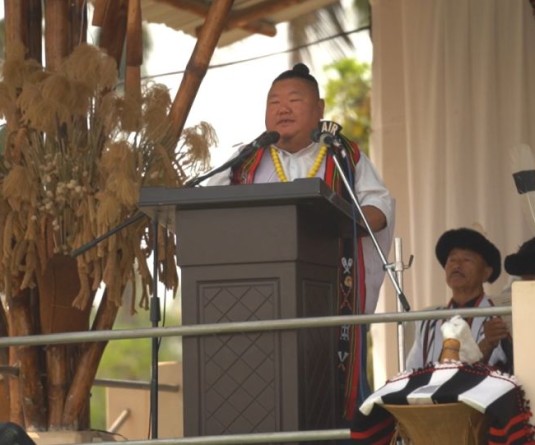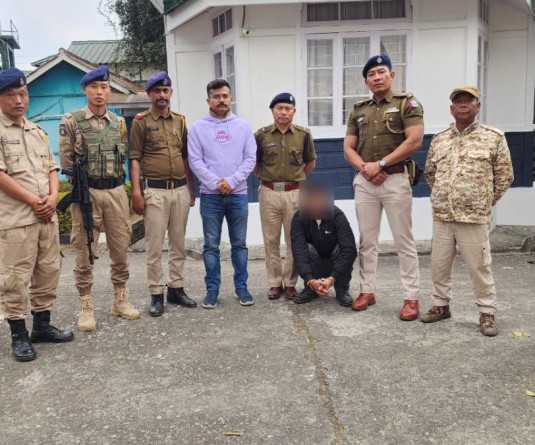Officials from the Department of Health & Family Welfare, Nagaland, hold a consultation with Karthik Adapa, IAS, Regional Adviser for Digital Health at WHO SEARO, during a two-day meeting on strengthening the state’s digital health ecosystem at the IDSP Conference Hall, Kohima.

KOHIMA, APRIL 4 (MExN): The Department of Health and Family Welfare hosted a two-day consultation and field engagement program with Karthik Adapa, IAS, Regional Adviser for Digital Health at the World Health Organization (WHO) South-East Asia Regional Office (SEARO), to discuss the integration of open-source digital health solutions into the state's healthcare infrastructure.
The meetings, held from April 2–4 at the Integrated Disease Surveillance Programme (IDSP) Conference Hall in Kohima, brought together top officials including Anoop Kinchi, IAS, Commissioner & Secretary to the Government of Nagaland, Health & Family Welfare. The high-level interactions aimed to assess and promote innovative, scalable digital health tools to enhance healthcare delivery across the state.
During the opening day on April 2, Adapa led detailed discussions with senior officials from the Directorate of Health & Family Welfare, emphasizing the potential of open-source digital platforms such as electronic health records, telemedicine systems, and integrated health data management tools. Officials examined how these technologies could improve patient outcomes, ensure efficient resource allocation, and make healthcare more accessible—particularly for remote and underserved communities in Nagaland.
“Open-source platforms offer a tremendous opportunity for low-resource settings to modernize healthcare without the financial burdens often associated with proprietary systems,” Adapa said during the meeting. He also stressed the importance of ensuring interoperability and adopting common standards to avoid the fragmentation of digital health systems—a common barrier to data sharing and coordinated care.
Day one of the meetings also explored policy-level concerns such as data security, long-term sustainability, and regulatory frameworks for digital health adoption. Participants shared implementation challenges and best practices in a session that highlighted the need for collaborative, cross-sectoral efforts.
On April 3, the engagement moved to ground-level observations. The visiting team toured the Nagaland Health Authority Kohima (NHAK) and the Seikhazou Urban Primary Health Centre (UPHC), where they evaluated existing digital health initiatives and assessed infrastructure readiness. These visits provided practical insights into how digital tools are currently being deployed and where gaps remain.
Following the site visits, discussions resumed at the Directorate with broader participation from NGOs and departmental representatives. The sessions focused on the potential of artificial intelligence (AI) and machine learning (ML) in transforming healthcare delivery—from predictive analytics in diagnostics to improved workflow automation.
Later in the afternoon, the team visited the Nagaland Institute of Medical Sciences and Research (NIMSR), where deliberations centered around integrating digital tools into medical research, education, and service delivery.
The program concluded on April 4 with field visits to healthcare facilities in Dimapur. At the District Hospital Dimapur, the delegation assessed infrastructure, equipment, and service quality. They later visited the Christian Institute of Health Sciences & Research (CIHSR), known for its advanced healthcare technologies and medical training programs.






